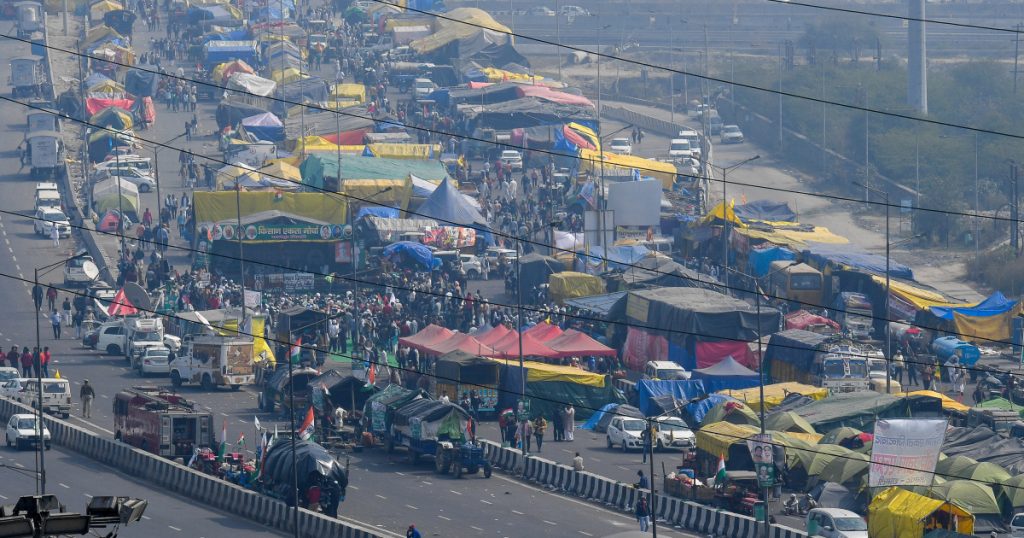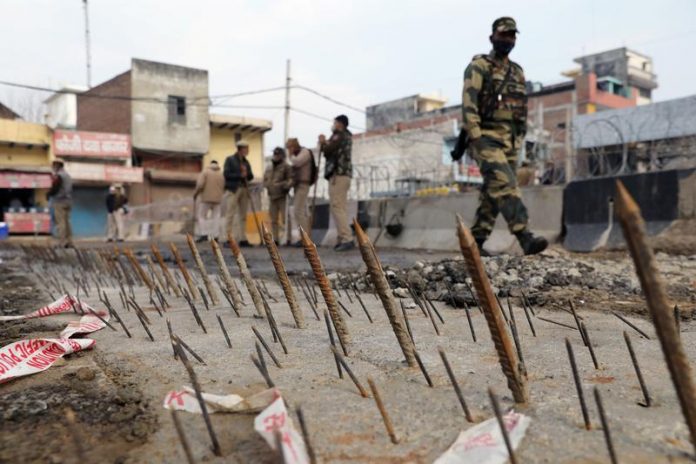NEW DELHI: Wading into a sensitive issue for Indian Prime Minister Narendra Modi, the U.S. embassy in New Delhi on Thursday urged his government to resume talks with farmers angry over agricultural reforms that sparked a months-long protest campaign.
Largely restricted to the outskirts of New Delhi, the mostly peaceful protests were marred by violence on Jan 26. when some protesters entered the heart of the capital city after the Republic Day military parade and clashed with police.
Television images broadcast internationally of protesters occupying the ramparts of New Delhi’s historic Red Fort and later clashing with police raised awareness of the confrontation between Modi’s government and the farmers.
“We encourage that any differences between the parties be resolved through dialogue,” a U.S. embassy spokesperson said in a statement that also proffered general support to government measures to “improve the efficiency of India’s markets and attract greater private sector investment.”

Modi’s government has held multiple rounds of talks with representatives of farmers who have camped in their thousands on the outskirts of the capital since late 2020, but there has been no word on when talks would resume following the Republic Day violence.
The farmers, who enjoy most support in northern India’s breadbasket states, argue that three new farm laws will hurt their interests while benefiting large firms.
But the government says the reforms will bring much-needed investment to a farm sector, that accounts for nearly 15% of India’s $2.9 trillion economy but employs about half its workforce.
The farmers’ cause has also drawn support from the Indian diaspora in Australia, Britain, Canada and the United States.
In late November, Canadian Prime Minister Justin Trudeau raised India hackles by speaking about the protests in a video message, saying he was concerned for the farmers. New Delhi said such comments were “an unacceptable interference in our internal affairs.”
Police remain on guard against further attempts by farmers to bring their mass protest into the capital, and have bolstered barricades at three main sites.
Earlier this week internet services were temporarily suspended in some areas, drawing widespread criticism, including from international activists and celebrities.
“We recognize that unhindered access to information, including the internet, is fundamental to the freedom of expression and a hallmark of a thriving democracy,” the U.S. embassy spokesperson said.
In response to social media posts on the internet shutdowns, India’s Foreign Ministry on Wednesday said vested interest groups were mobilising international support against the country.
There was no immediate response from the ministry to the U.S. comments on Thursday.
Farm union leaders have been calling for a repeal of the new laws and to make the government’s crop price guarantee scheme legally binding, and for the withdrawal of legal cases against protesters.
But, some farmer groups have expanded their list of demands.
At a rally in northern Haryana state on Wednesday, thousands of farmers from the politically influential Jat community backed a call to waive farm loans and increase crop prices paid by the government.
“If the government doesn’t concede to our demands, thousands more farmers will march towards Delhi,” Kek Ram Kandela, a leader among the Jat farmers, told the rally attended by more than 50,000 people.

















